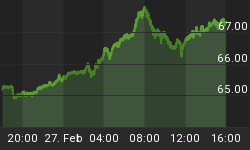Over the past decade, lenders dramatically loosened underwriting standards and aggressively marketed an assortment of exotic mortgage products designed to make home ownership more "affordable." In the end, they helped to create a now-bursting real estate bubble that increased the costs of shelter for most Americans and left many of those who shouldn't have taken the plunge in the first place unable to afford rising mortgage payments -- or anything else.
By communicating more openly and adopting a measured pace of interest rate rises in the two-year period that began in June 2004, the Federal Reserve sought to restore a measure of economic equilibrium while reducing market uncertainty. In reality, their approach helped bolster a quantum leap in risk-taking on Wall Street and elsewhere and added to ever-growing imbalances that have destabilized the U.S. economy and made the outlook as uncertain as ever.
Designed to facilitate risk-sharing and mitigate the cyclical downside of traditional banking practices, the widespread use of securitization in recent years has been seen as a boon. Instead, it has transformed plain-vanilla credit exposure into a dangerous concoction of credit, interest rate, prepayment, counterparty, timing, and operational risk. The gold rush of modern financial alchemy virtually ensures that all facets of the economy will be adversely affected when circumstances take a turn for the worse.
Historically, policymakers have viewed over-the-counter derivatives as the province of sophisticated financial operators who are capable of looking after their own interests. Yet by seemingly encouraging those who are actively involved with these often highly-leveraged securities to focus on profitability without any real oversight or incentives to take stock of the bigger picture, it is likely that the eventual violent unraveling will be in no one's interests.
Similarly, by allowing hedge funds relatively free rein, regulatory overseers in Washington and elsewhere have essentially facilitated the spectacular growth of an industry with a voracious appetite for taking on risk. With limited liability and an asymmetric compensation structure that encourages many such operators to go for broke, regulatory arbitrage and intense competitive pressures means it won't just be sophisticated investors who feel the pain.
To help investors stay better informed and to minimize the potential for Enron-like chicanery, policymakers introduced measures like the Sarbanes-Oxley Act of 2002, which mandated a host of costly accounting and reporting requirements, and Regulation Full Disclosure, which limited when and how executives could discuss business prospects. Many companies are now delisting from U.S. exchanges or shifting activities to more lightly regulated regimes, while most people seem to know less about what is going on in corporate America than before.
In theory, incentive compensation stock options ensure that the interests of investors and managers of publicly-traded companies are aligned. In practice, inadequate accounting rules, poor regulatory oversight, a distorted tax code, and the lopsidedly pro-business government policy orientation of recent years has meant otherwise. One result has been a growing scandal involving executives at more than 150 companies who allegedly manipulated options prices for personal gain, while another has been a ramp-up in borrowing to fund stock buybacks at inflated prices.
"Sooner or later," as Robert Louis Stevenson once remarked, "everyone sits down to a banquet of consequences." Unfortunately, the cumulative effect of a wide range of unintended consequences such as these means that Americans as a group will be forced to take the Scottish author's words to heart in the not too distant future. It will not be a pretty sight.















